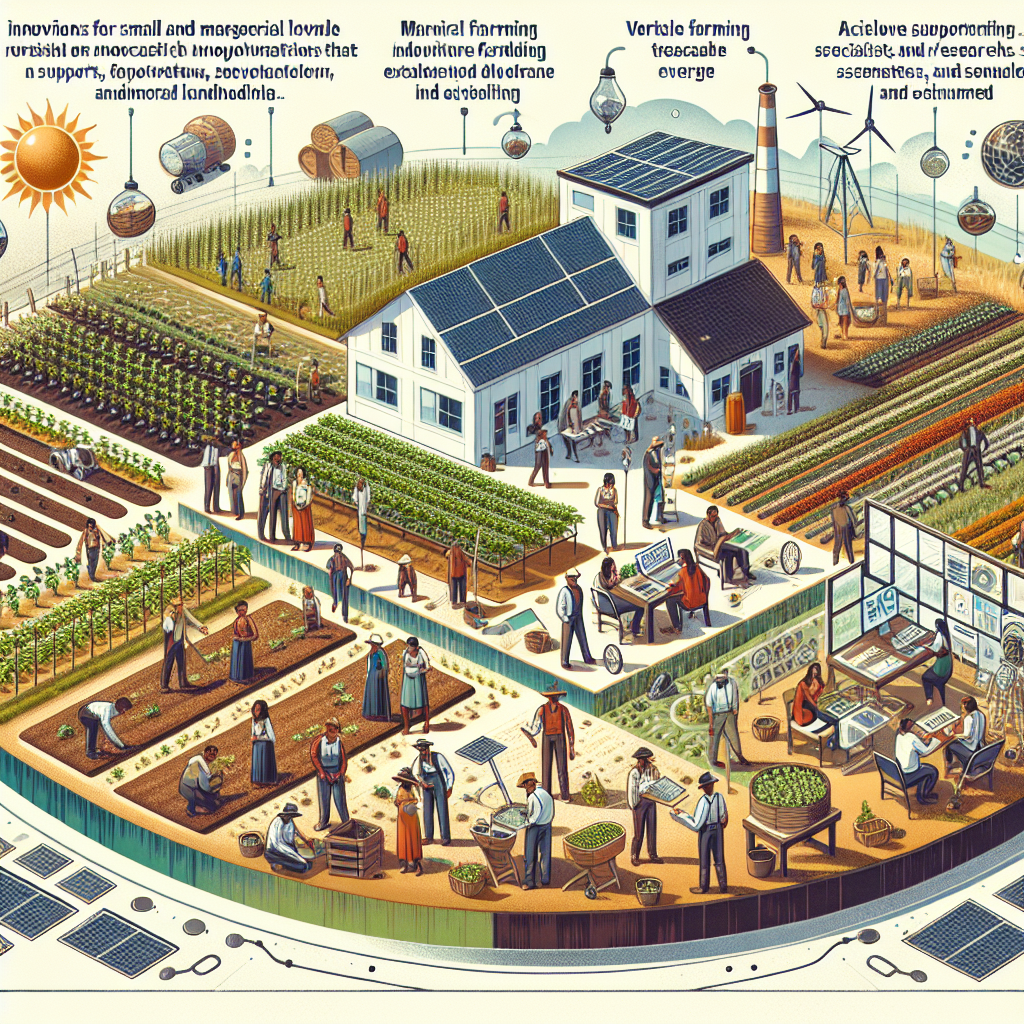Empowering India's Small Farmers: Innovative Agritech Solutions Transforming Lives
India's small and marginal farmers face numerous challenges, but initiatives like Cisco's Krishi Mangal are fostering agritech startups to tackle these issues. By building a collaborative ecosystem of stakeholders, these programs aim to create sustainable solutions. There is a need for re-evaluation of existing schemes to better support these farmers.

India's population. However, out of this, about 85% are small or marginal farmers with an average landholding of only 2 acres per household. Small and marginal landholding farmers contribute about 51% of agricultural output with 46% of operated land and produce about 70% of the share of high-value crops in India. Challenges such as water scarcity, soil fertility, pests and diseases, limited inputs, unfavourable policies, limited access or lack of markets as well as climate issues, plague the small and marginal landholdings at a higher intensity than others. In addition, many of these smaller units of land are commonly observed as unviable for agriculture and, therefore, unable to provide a sustainable livelihood for their owners.
Right from sowing, farm and labor management, and financial support to farm management, market consolidation, storage, and protection against losses or crisis, small and marginal farm holdings suffer innumerable issues while facing high transaction costs, lack of collective action, and coordination failure in production and marketing. Need of the Hour It is clear that with the sheer size of small and marginal landholdings in our country, the available options are not sufficient to address issues that haunt them. Innovative ideas, disruption in technology and practices, a user-centric approach to create sustainable solutions, and a more focused perspective towards these challenges are required at a larger scale.
Giving wings to agritech start-ups who are working on such solutions, Krishi Mangal, a flagship initiative of Cisco, in partnership with Social Alpha, brings together a robust ecosystem of partners that comprise domain experts, investors, government stakeholders, and start-ups to catalyse initiatives. Launched in 2021, the program to date has supported 12 start-ups committed to impacting the lives of more than 45,000 farmers and still counting.
''It's inspiring to witness how agritech startups are responding to current agricultural challenges, offering solutions that can revolutionise farming for small and marginal farmers. Initiatives such as Cisco's Krishi Mangal are pivotal in fostering sustainable businesses that significantly benefit the farmers. It requires an ecosystem approach with incubators, industry bodies, investors, and other stakeholders, with the government playing a key role in catalysing the collaborative efforts, and we are committed to this through such programs,'' said Harish Krishnan, Managing Director & Chief Policy Officer, Cisco India & SAARC What Can Be Done Many similar impact programs exist in India to help various states consolidate and integrate small and marginal landholding farmers into a more cohesive system. Programs such as the Uttar Pradesh Accelerator PRAGATI, the Swayam Shikshan Prayog based out of the Marathwada region, PRADAN working in central and eastern Indian states, etc., are some examples that have created a step-by-step solution to solve various issues of the small and marginal farming community. With like-minded partners who can collaborate to build systems that support initiatives and innovators at multiple stages, we need to create a cohesive ecosystem that brings everyone together in a value chain, from on-ground demand generation to funder and policy level. Farmers at their field The ecosystem needs to involve multiple stakeholders, right from farmers, the organisations working on the ground with farmers, line departments working along with village-level institutions, government departments, technology development agencies, organisations supporting innovations, foundations, and investors. Such an inclusive system can aid start-ups or innovators in understanding the exact demand from farmers and users, help them develop sustainable user-centric products, support them at each stage of product development, as well as enable these start-ups to access the early markets for their products. Closing the loop with user feedback, for improvement and validation of the product, thereby keeping this symbiotic relationship going.
The world is racing towards quantum computing, and as an IT giant, India holds a unique position to build a unified framework using its technological prowess that supports innovation-driven perspectives to improve the lives of small and marginal landholdings. Even if we start small, starting with a vision of one start-up impacting 10,000 farmers every year, it would take only 100 start-ups to impact life of a million farmers a year. While there have been various schemes and programs by the government to aid small and marginal land holdings, the intensity and distribution of such schemes, the financial and logistical support, investments, and technological advancements leave a lot to be desired. As times change, it is upon us to re-evaluate our programs and bring in a fresh perspective.
(This story has not been edited by Devdiscourse staff and is auto-generated from a syndicated feed.)
- READ MORE ON:
- agriculture
- small farmers
- agritech
- Cisco
- Krishi Mangal
- innovation
- technology
- startups
- India
- farming
ALSO READ
China Scrutinizes Meta's AI Acquisition: Potential Technology Control Concerns Loom
Teeing Up Innovation: The Women's Tech-Driven Golf League
Bayer's Legal Battle Over mRNA Technology: A COVID-19 Vaccine Controversy
Bayer's Legal Battle: Challenging Vaccine Giants Over mRNA Technology
Rajasthan Leads Innovation with AI-ML Policies and Literacy Initiatives










